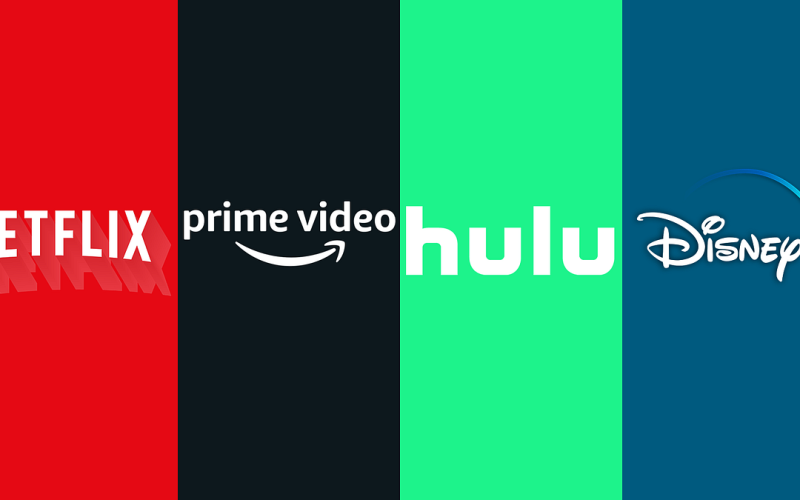Introduction
In recent years, the landscape of documentary filmmaking has undergone a seismic shift, largely due to the advent and proliferation of streaming services. Platforms like Netflix, Amazon Prime, Hulu, and Disney+ have not only changed how audiences consume content but have also revolutionized the production, distribution, and reception of documentary films. This article delves into the myriad ways streaming services are transforming the documentary film industry.
The Democratization of Documentary Filmmaking

One of the most significant impacts of streaming services on documentary films is the democratization of filmmaking. Traditional barriers to entry, such as high production costs and limited distribution channels, have been significantly lowered. Aspiring filmmakers now have access to a global platform where their work can reach millions of viewers without the need for a theatrical release.
Streaming services have also introduced a more diverse range of voices and stories. With fewer gatekeepers and a broader audience, niche topics that may not have found a place in mainstream cinema are now being explored. This inclusivity has enriched the documentary genre, offering viewers a wider array of perspectives and subjects.
Enhanced Accessibility and Convenience
Before the rise of streaming platforms, documentaries were often confined to film festivals, specialized theaters, or late-night television slots. Today, viewers can access a vast library of documentary films at their convenience, anytime and anywhere. This on-demand accessibility has led to increased viewership and a growing interest in the genre.
Moreover, streaming services often provide subtitles and multiple language options, making documentary films accessible to a global audience. This has not only broadened the reach of documentaries but has also facilitated cross-cultural understanding and appreciation.
Innovative Storytelling Techniques

The competitive nature of streaming services has pushed documentary filmmakers to adopt innovative storytelling techniques to capture and retain viewers’ attention. Interactive documentaries, for instance, allow viewers to engage with the content in a more immersive way. Platforms like Netflix have experimented with branching narratives, where viewers can make choices that influence the storyline.
Additionally, advancements in technology, such as virtual reality (VR) and augmented reality (AR), are being integrated into documentary filmmaking. These technologies offer a more immersive and engaging experience, allowing viewers to feel as though they are part of the story.
Data-Driven Content Creation

Streaming services have access to vast amounts of data on viewer preferences and behaviors. This data is invaluable for documentary filmmakers, as it provides insights into what types of content resonate with audiences. By analyzing viewing patterns, filmmakers can tailor their projects to meet audience demand, increasing the likelihood of success.
Furthermore, data-driven algorithms on streaming platforms recommend documentaries to users based on their viewing history. This personalized recommendation system helps documentaries reach a wider and more targeted audience, increasing their visibility and impact.
Financial Incentives and Funding Opportunities

Streaming services have become significant players in the financing and production of documentary films. Companies like Netflix and Amazon Prime have substantial budgets allocated for original content, including documentaries. This financial support has enabled filmmakers to undertake ambitious projects that might not have been feasible otherwise.
Moreover, the success of high-profile documentaries on streaming platforms has demonstrated the commercial viability of the genre. This has attracted more investors and production companies to the documentary film industry, leading to an increase in the quantity and quality of documentary films being produced.
Case Studies: Success Stories

Several documentary films have achieved remarkable success on streaming platforms, highlighting the transformative impact of these services. For example, Netflix’s “13th,” directed by Ava DuVernay, explores the intersection of race, justice, and mass incarceration in the United States. The documentary received critical acclaim and sparked widespread conversations about systemic racism, demonstrating the power of streaming platforms to drive social change.
Another notable example is “Free Solo,” available on Disney+, which chronicles rock climber Alex Honnold’s solo ascent of El Capitan. The film won an Academy Award for Best Documentary Feature and reached a global audience through the streaming platform, showcasing the potential for documentaries to achieve both critical and commercial success.
Challenges and Future Prospects

While streaming services have revolutionized documentary films in many ways, they also present certain challenges. The sheer volume of content available on these platforms can make it difficult for individual documentaries to stand out. Additionally, the emphasis on data-driven content creation may lead to a focus on popular topics at the expense of more unconventional or experimental subjects.
Nevertheless, the future of documentary films on streaming platforms looks promising. As technology continues to evolve and audiences become more receptive to diverse and innovative content, the documentary genre is likely to flourish. Streaming services will continue to play a pivotal role in shaping the future of documentary filmmaking, offering new opportunities for filmmakers and enriching the viewing experience for audiences worldwide.
Conclusion
In conclusion, streaming services have revolutionized documentary films by democratizing filmmaking, enhancing accessibility, fostering innovative storytelling, leveraging data-driven insights, and providing financial support. While challenges remain, the transformative impact of streaming platforms on the documentary genre is undeniable. As we move forward, the continued evolution of streaming services promises to bring even more exciting developments to the world of documentary filmmaking.










